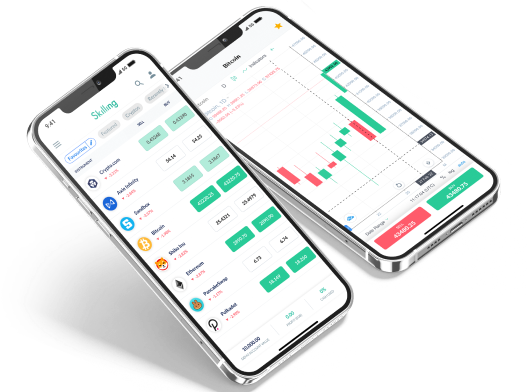PMI is a key economic indicator in the world of finance and trading. This article will explain PMI, detail how it works, discuss its importance for traders, and answer some common questions related to this key economic measure.
What is PMI?
PMI stands for The Purchasing Managers' Index, an economic indicator that provides insights into the manufacturing and service sectors' health. It is taken from monthly surveys conducted among purchasing managers at private sector companies. These managers are surveyed on various business variables, including output, new orders, stock levels, employment, and supplier delivery times.
The PMI is a composite index, meaning it is calculated as a weighted average of these five individual sub-components. A PMI reading above 50 indicates expansion in the sector compared to the previous month, while a reading below 50 suggests contraction. The neutrality point is 50, which indicates no change.
Experience Skilling's award-winning platform
Try out any of Skilling’s trading platforms on the device of your choice across web, android or iOS.

How does PMI work?
To calculate PMI, purchasing managers are asked to rate the relative level of business conditions, including employment, production, new orders, prices, supplier deliveries, and inventories. A figure above 50 indicates that the manufacturing or service sector is generally expanding; below 50 indicates that it is generally contracting.
The PMI is a significant indicator because it provides information about current business conditions to decision-makers, analysts, and purchasing managers. It is one of the most closely watched indicators for economic analysis and forecasting, providing insights into economic trends, and sector performance before official data is released.
Why PMI is important for traders
The Purchasing Managers' Index (PMI) is more than just a number; it's an indication of economic health, particularly in the manufacturing and service sectors. PMI data is highly valued in trading circles due to its ability to provide early signals about the state of the economy, which can pre-empt official government reports.
This timely information for traders as it can influence market sentiment, guide investment strategies, and impact decision-making processes. Understanding the nuances of PMI readings allows traders to anticipate market movements, adjust their positions in response to economic trends, and align their strategies with the broader economic outlook. In essence, PMI is a vital tool for traders for several reasons:
- Economic health indicator: PMI provides early insights into the economic health of the manufacturing and service sectors, which are key drivers of economic growth.
- Market sentiment: Changes in PMI can influence market sentiment and expectations about the future state of the economy.
- Informed decision-making: Traders use PMI data to make informed decisions about potential investments, as it can signal shifts in economic trends.
- Policy decisions: Central banks and policymakers often consider PMI data when making monetary policy decisions, which can impact financial markets.
FAQs
1. Who publishes the PMI?
PMI data is typically published by private financial information firms, like the Institute for Supply Management (ISM) in the United States and IHS Markit for other regions.
2. How often is PMI data released?
PMI data is usually released on a monthly basis, providing timely insights into economic trends.
3. Can PMI data predict economic recessions?
While PMI is a leading indicator and can signal economic downturns, it should be used with other data for predicting recessions.
4. Does PMI only cover the manufacturing sector?
PMI covers both the manufacturing and service sectors, though they are often reported separately.
5. How do traders use PMI data in their strategies?
Traders use PMI data to assess sector-specific and overall economic health, which can guide investment decisions in stocks, bonds, and other financial instruments.
What's your Trading Style?
No matter the playing field, knowing your style is the first step to success.

Summary
PMI is an influential economic indicator that offers valuable insights into the manufacturing and service sectors' health. For traders, understanding and interpreting PMI data is essential for gauging economic trends and making informed trading decisions. Keeping abreast of PMI readings can provide traders with an edge in the fast-paced world of financial markets. However, past performance is not an indication of future performance.
Skilling provides a user-friendly platform with access to a wide range of trading indicators. Traders can customise their analysis with tools like interactive charts, real-time data, and a variety of technical indicators. Skilling's platform is designed to help novice and experienced traders, offering educational resources to help users understand and effectively utilise these indicators in their trading strategies.











